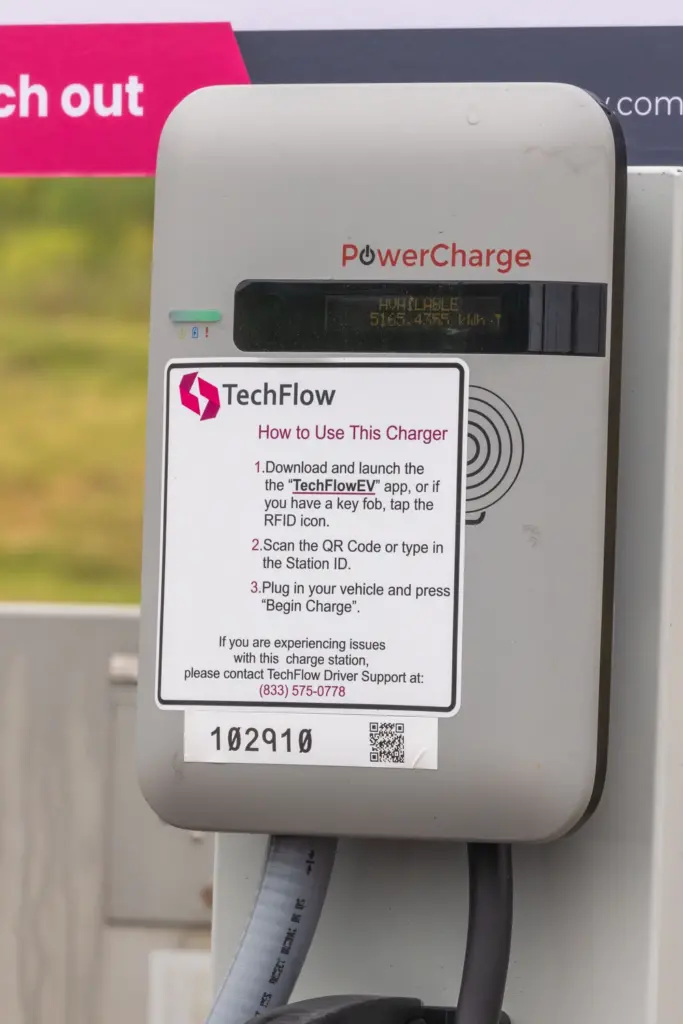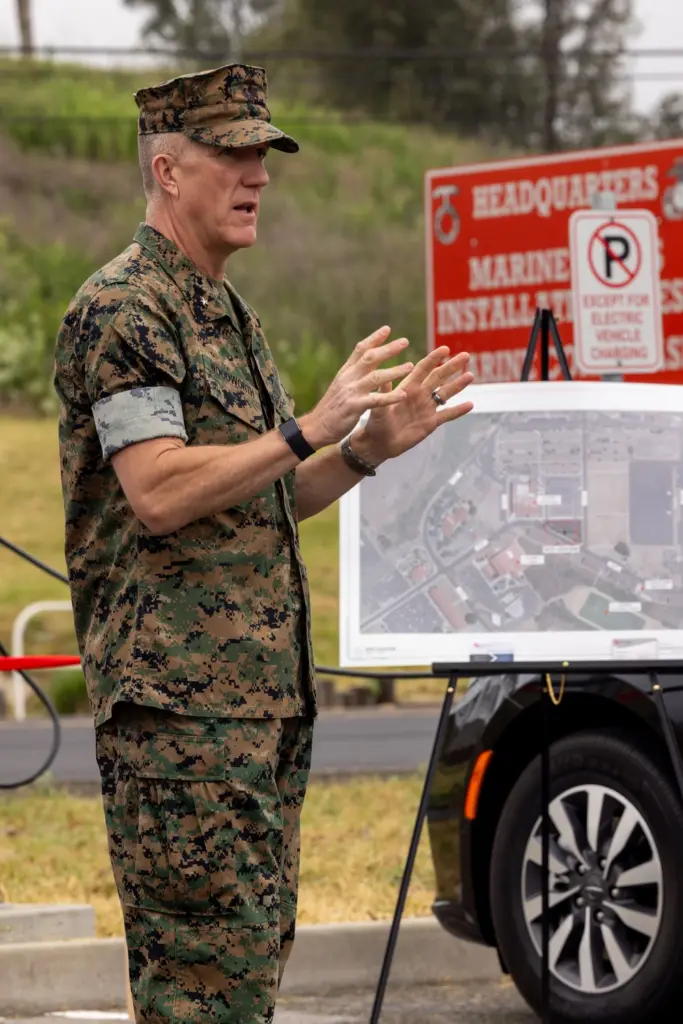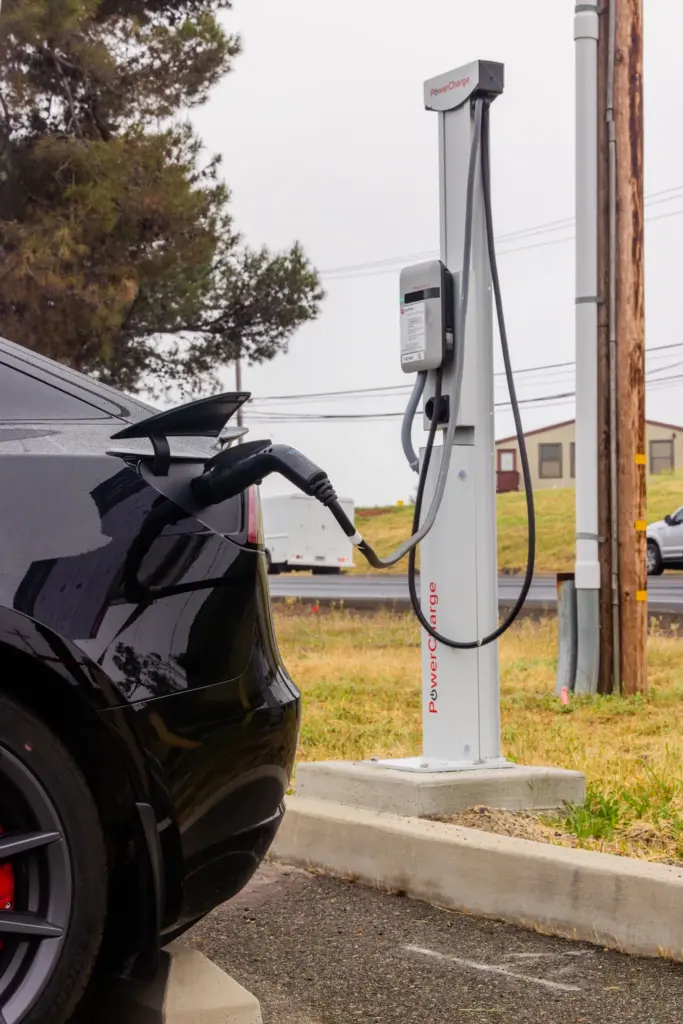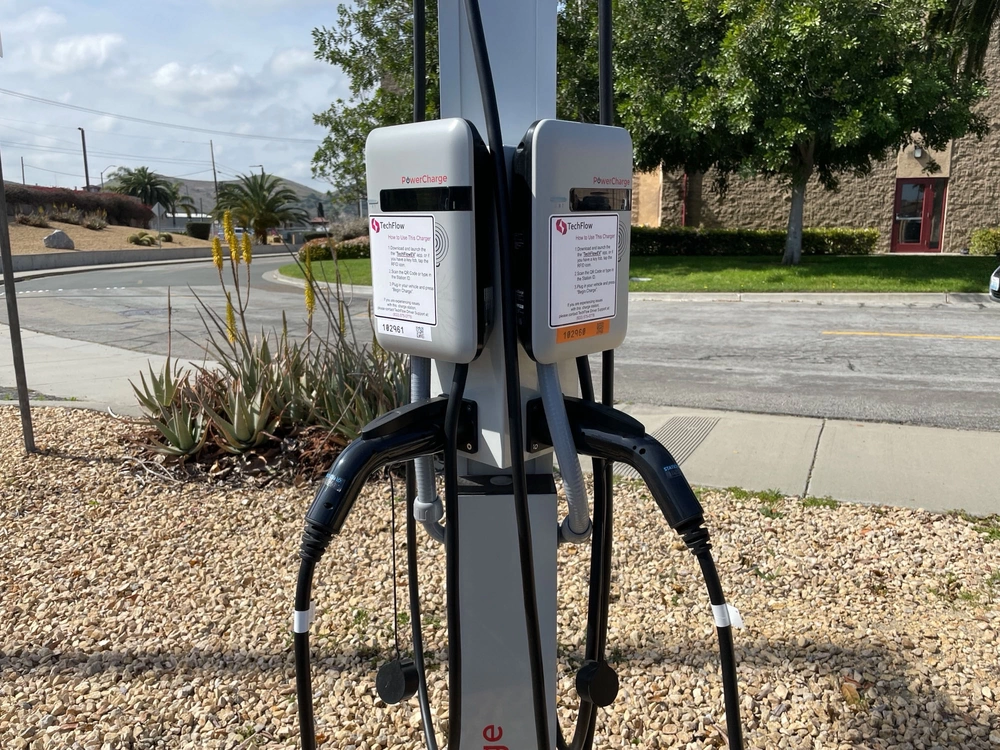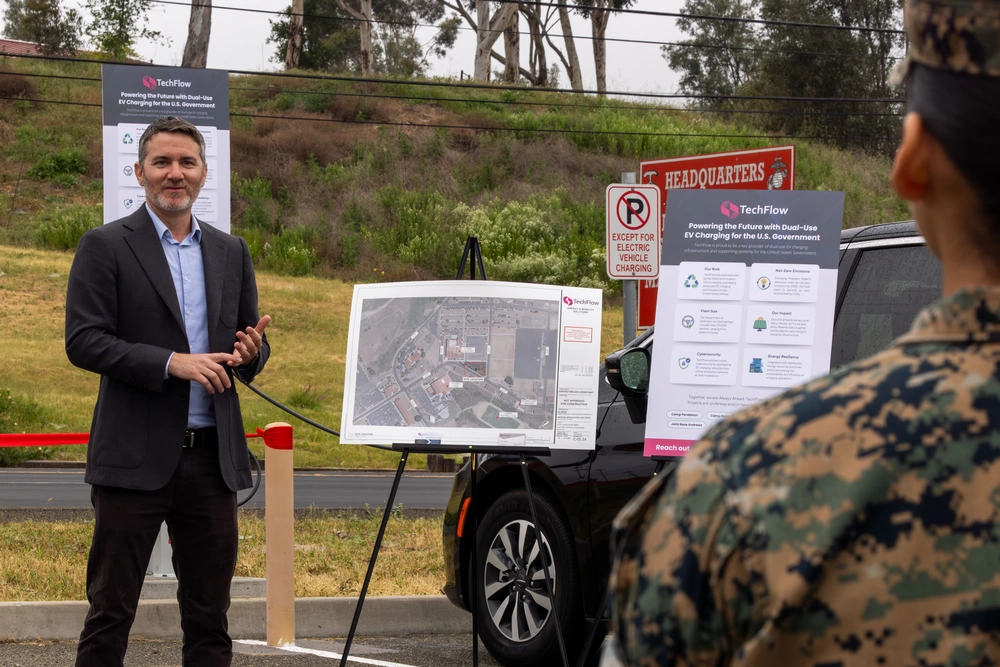
This article was originally published here by USMC Cpl. Mary Jenni on 4/22/24.
MARINE CORPS BASE CAMP PENDLETON, Calif. – Marine Corps Base Camp Pendleton had extended electric vehicle charger service beyond government owned electric vehicles (EVs) to personally owned EVs. As of April 22, 2024, this new resource is available to EV drivers with base access.
There are already charging stations at MCB Camp Pendleton for government EVs; the modernization of the 46 level 2 charging stations will now support charging for personally owned EVs and government EVs simultaneously. Base patrons will be able to differentiate government from personally owned EVs ports through a detailed instruction label on each charging station. Government EVs will use a radio frequency identification key fob to activate the charger while personally owned EVs will use a mobile app serviced through TechFlow Incorporated.
The app enables drivers the ability to save a charging site as a favorite. This allows a user to input the station ID of the charging site with the ability to view its availability from a remote location.
TechFlow also provides 24/7 customer service, monitoring and maintenance to the charging stations. Payment is only accepted through this app to ensure safety, reliability, and convenience. You can find the “TechFlowEV” app at your mobile app store.
These level 2 chargers can support alternative power sources such as battery, solar, wind turbine, and on-site generation. They also charge a Battery EV to 80% in 4 to 10 hours and a Plug-in Hybrid EV in 1 to 2 hours, allowing Camp Pendleton personnel to charge their vehicles conveniently, efficiently, and with environmentally friendly practices.
“These chargers represent a tangible step towards continuing to support the needs of our Marines, Sailors, families, and civilians that work and live on Camp Pendleton, while also reducing the carbon footprint,” said U.S. Marine Corps Brig. Gen. Jason Woodworth, the commanding general of Marine Corps Installations West, MCB Camp Pendleton. “We understand the importance of permanent infrastructure, enabling sustainable transportation options. These chargers not only symbolize progress but also demonstrate our dedication to embracing innovation for the betterment of our community and environment.”
The current cost to power a personally owned EV is 36.5 cents per kWh, however, is subject to change based on installation patron usage, energy consumption, and fluctuating costs of local utilities. Additionally, there are added fees for remaining plugged into a charging station beyond full charging capacity of the vehicle. This is known as loiter time. There is a 30-minute grace period for the loiter time, with 50 cents per minute after loiter time expiration.
If someone leaves their car beyond the full charging time, they will receive a notification from the mobile app providing charging updates and warnings of loiter time. If a driver leaves their car beyond the loiter time, they may be subject to additional fees, towing at the owner’s expense, and or administrative penalties. This is to ensure the charging station remains open and available to other drivers.
These EV chargers are not for profit. All funds accrued by the charging stations supplement the upkeep and maintenance of the systems. All funds associate with personally owned EV charging are maintained by TechFlow, and there are no financial transactions associated with government EV charging.
“TechFlow is honored to collaborate with MCB Camp Pendleton. We at TechFlow are dedicated to maintaining operational excellence and adaptability in our electric vehicle charging solutions,” said Michael Genseal, VP and Business Unit Manager at TechFlow Energy and Mobility Solutions. “Our mission-centric approach ensures that our infrastructure not only fulfills the unique needs of the Marines, Sailors, and civilian personnel at Camp Pendleton but also supports the base’s transition to clean energy with enhanced reliability and efficiency.”
MCI-West, MCB Camp Pendleton’s primary mission is to support training, sustain and deploy the warfighter, while providing them and their families with services that enrich their lives. As the premier west coast expeditionary training facility, MCB Camp Pendleton prioritizes quality of life for those who live here by recognizing needs and implementing changes, to include those with positive environmental impacts.
